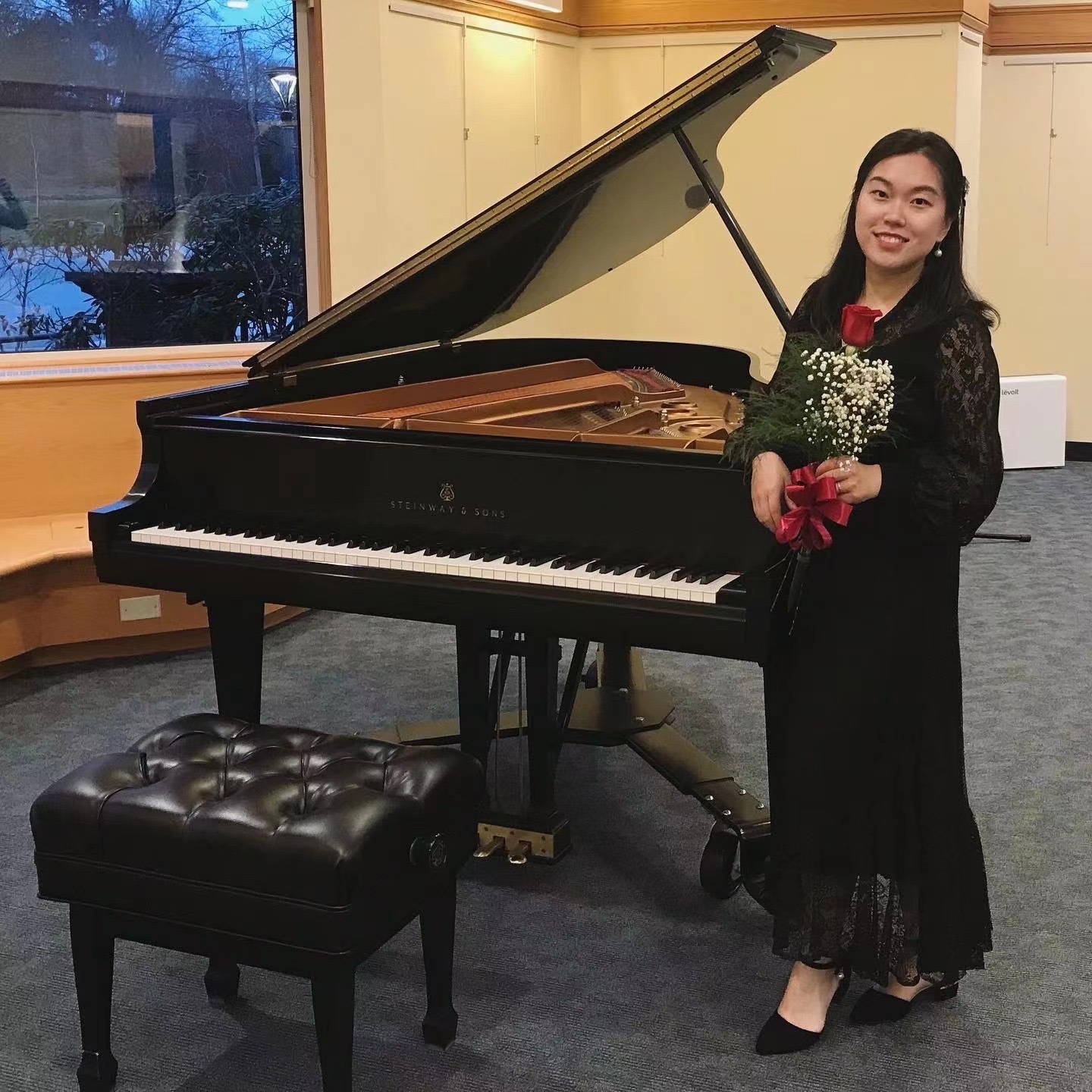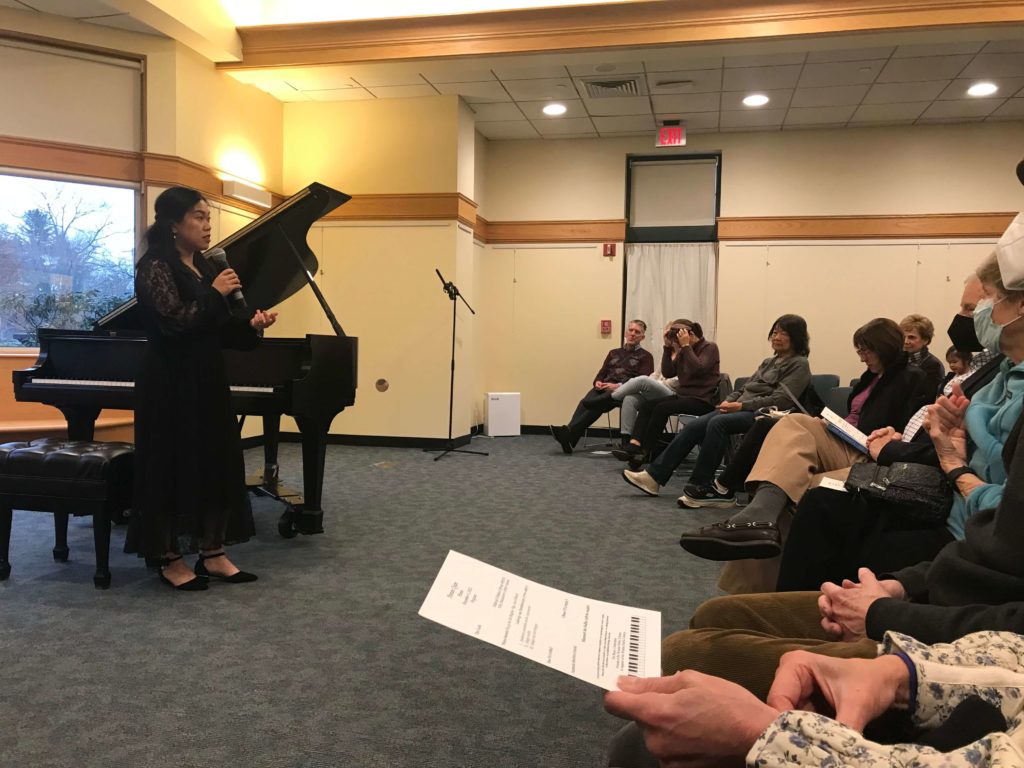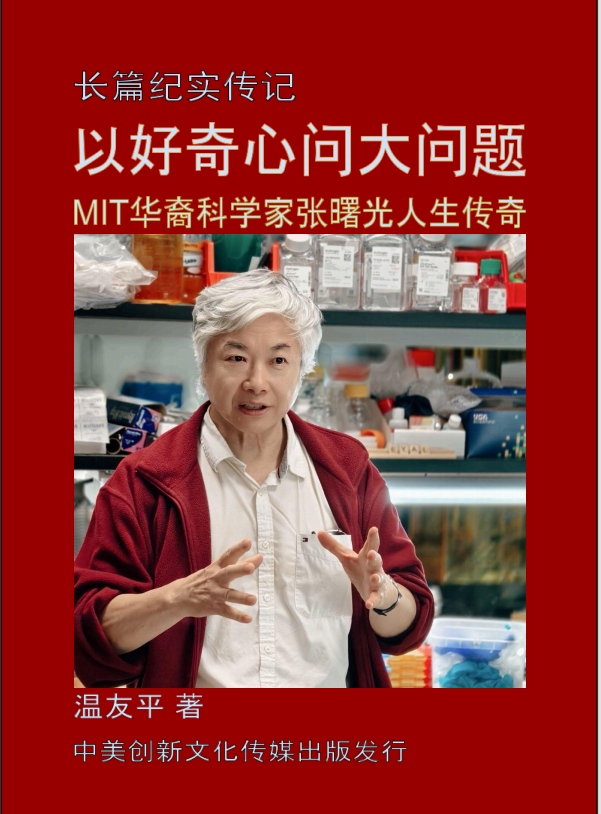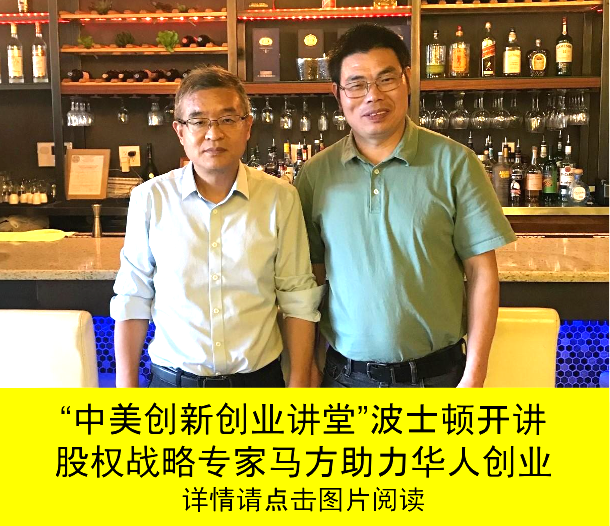钢琴家钱安然受邀韦斯顿公立图书馆音乐会精彩演绎文化融合

【中美创新时报2022年12月16日讯】(记者温友平)2022年12月4日下午3点,韦斯顿公立图书馆(Weston Public Library)迎来了一场久违的传统音乐会。现就读于美国波士顿大学攻读博士学位的钢琴家钱安然受韦斯顿公立图书馆音乐委员会热情邀请,为韦斯顿的观众们演绎了一场主题为文化融合的钢琴独奏会。现场近百位当地美国居民热情欣赏了钱安然的精湛演出并报以阵阵热烈掌声。
据介绍,韦斯顿公立图书馆有着丰富的音乐会历史。图书馆的音乐委员会每年都会邀请极少数优秀的音乐家前来举办音乐会,以此来推动、促进韦斯顿观众们对音乐的热爱和文化的理解。当在聆听过钢琴家钱安然的演奏视频后,音乐委员会的每一位成员都十分欣赏钱安然精湛的演奏。在同时收到非常多其他优秀钢琴家的请求来举办独奏音乐会的情况下,委员会成员Inge Engler热情地邀请钱安然于12月4日前来奏响韦斯顿公立图书馆的琴声。
钱安然出生于湖北武汉,于2014年开始她的美国留学生涯。她毕业于美国茱莉亚音乐学院,曾师从于肖邦第三代传人、著名钢琴家杰罗姆·罗文塔尔以及世界著名钢琴家、著名三重奏Kalichstein-Laredo-Robinson成员、范克莱本钢琴大赛评委约瑟夫·卡利奇施坦。她现就读于美国波士顿大学,攻读钢琴系博士学位。
钱安然曾数次获得国内外钢琴比赛的奖项,并活跃于世界各地的音乐舞台。她的演奏曾被著名钢琴家阿里瓦迪称为“顶级的演奏”,并被作曲家陈怡评价为“卓越,并拥有杰出的开创精神”。她也同样热爱为社区分享她对音乐的热爱。在疫情期间,她曾受联合国室内乐协会的邀请为世界各地的人民进行远程演出,用她的演奏抚慰人心。在今年5月份,她亦受邀在波士顿的St. Peter’s Episcopal Church为乌克兰人民进行筹款演出,用音乐的力量带给人希望。
在纽约留学期间,她曾荣幸被选为茱莉亚音乐学院的社区活动成员,并多次为当地社区养老院、医疗中心、特殊儿童治疗中心和其他社区活动献上演出。她深刻地体会到,当她演奏起她所挚爱的音乐时,无论人们来自怎样的地方、无论他们讲着什么样的语言、无论他们有着怎样的经历,大家都能放下心防,和彼此产生共鸣,产生连接。通过这些演出,她邂逅了来自世界各地的观众,聆听了不同的人生故事和经历,并一次又一次地被音乐所带来的神奇魔力所震撼。
记者在演奏会现场了解到,这场音乐会的主题是文化融合,钱安然在一个多小时内以精湛的技艺先后演绎了四首来自于不同国家的著名钢琴家代表曲目。同时,记者还注意到一个细节,钱安然不但通过演奏四个不同国家文化背景的代表名曲来体现文化融合的内涵,而且她还通过语言介绍讲述自己对于文化融合的经历故事。

钱安然说,在美国留学的时光里,她经常被美国对于不同文化的“包容性”和“融合性”所深深触动。她向观众忆起一件趣事:在美国留学后,她回国与朋友们聚会。朋友们饶有兴致地向她打听美国的美食文化。当她说她在美国吃过的最好吃的料理分别是墨西哥菜,日本料理和中东菜时,在场的朋友无不震惊:“你不是在美国留学吗?怎么吃的是别的国家的食物?”她向朋友们解释道,“美国就是一个文化大熔炉!美国融合了不同文化带来的不同风情,这一点在美食上的体验尤为明显。”她对这件事情记忆犹新,并认为音乐和美食、文化一样,无论来自哪里,他们都值得被欣赏和被看到。
在音乐会的上半场,钱安然首先为观众们演绎了由格林卡谱写,巴拉基列夫所改编的高难度作品《云雀》。钱安然回忆起,她第一次听到这首曲子是在幼时的一次钢琴比赛中。当她听到她的朋友演奏这首曲目时,她立刻爱上了这首曲子优美的旋律。她问起爸妈:“为什么我不能弹这首曲子比赛呢?”爸妈彼时笑着说:“等你长大了,你想弹什么曲子都可以。”钱安然对观众们笑道,“这么多年过去了,这句话果然成真了。” 这首作品有着优美动听的旋律和较为复杂的织体,演奏家钱安然把其婉转悠扬的美感表达得淋漓尽致,演奏中包含着深厚的情感。
第二首作品则是著名德国作曲家贝多芬所谱写的降A大调钢琴奏鸣曲《作品110号》。钱安然在演奏前向观众介绍,这首作品作于贝多芬晚期时代,其写作手法之成熟与巧妙远超他的早期作品。这首奏鸣曲一共有三个乐章,最后一个乐章包含一段富有美感又不失力量的赋格。钱安然认为,贝多芬搭建了古典时期向浪漫时期过渡的桥梁,这首作品中既有古典主义的结构美,又有浪漫时期的表现力,更含有贝多芬“扼住命运的喉咙”的斗争精神。
接下来,钱安然带来了一首由中国作曲家陈怡所创作的作品《多耶》。这首作品创作于1984年,其灵感来自广西侗族的传统音乐舞蹈形式——多耶。在这首作品中,作曲家也运用了京剧的节奏型式与手法来描述侗族人民和北京人民一起载歌载舞的欢乐场景。众人围着火篝,大家伙们一起跟随着领舞者唱跳,这便是充满喜庆的“多耶”了。钱安然的演奏充满魅力,感染着在坐的鲜少体验过中国风味的美国观众们。
当天的最后一首作品《贝蒂卡幻想曲(Fantasia Baetica)》来自于西班牙,为作曲家德·法雅(Manuel de Falla)所作。这首作品有着独特的西班牙风味,并模仿了古典吉他的演奏技巧,对于钢琴演奏者的技术要求非常之高。据钱安然介绍,这首作品原是为著名钢琴家阿图尔·鲁宾斯坦(Arthur Rubinstein)所作,但鲁宾斯坦在收到曲子之后曾抱怨这首作品“太难,太长”,于是只能在收到作品的第二年才演奏这首曲子。钱安然对观众们笑道:“如果鲁宾斯坦都觉得这首曲子非常难,他一定是在说真话。”观众们皆哑然失笑。钱安然的纯熟技巧和激情演奏征服了这首高难度的曲目,点燃了观众们的热情。
演出结束后,观众们热烈鼓掌,掌声久久没有停息。主持人Jane Carlson表示,这是一场非常高质量的精彩音乐会,他们很荣幸能够邀请钱安然来演绎这场音乐会。观众们排起了长队,纷纷向钱安然表示由衷的欣赏与赞叹。其中一位观众对“多耶”产生了浓厚的兴趣,惊叹道:“这首音乐太精巧了,我非常想看到中国的舞者来演绎’多耶’!”
图书馆中的音乐停止了,但传递的文化不止……
图片1:演出接受后钱安然演出结束后钱安然高兴地接过主持人Jane Carlson送上的鲜花。(温友平摄影)
图片2:钢琴家钱安然每演奏完一首曲子后还与现场观众分享自己对于作品的理解。(温友平摄影)
Diversity In The Classical Piano World
Chinese pianist Anran Qian presented a long-hoped-for in-person concert on Sunday, December 4, at the Weston Public Library, Massachusetts. Qian is currently pursuing her doctoral degree at Boston University. Invited by the music committee of the library, Qian brought a fusion-themed solo piano program, and her masterly performance received applause from almost a hundred local audiences.
Weston public library has a long history with concert series. Aiming to “promote the appreciation and love of music and to expand the cultural opportunities available…” in Weston, the library invites only a few outstanding musicians to be part of their concert season each year. After listening to Qian’s performance videos, every committee member loved Qian’s passionate playing. Though receiving many other requests from pianists to give solo recitals, Inge Engler, one of the committee members, enthusiastically invited Qian for a performance on December 4 at Weston Public Library.
Born into a musical family in Wuhan, China, Qian started her journey in the United States in 2014. Qian completed her Bachelor’s and Master’s degrees at The Juilliard School in the United States under the guidance of Jerome Lowenthal and Joseph Kalichstein. She is currently pursuing her Doctor of Musical Arts degree at Boston University.
As a young pianist, Qian was a prizewinner and laureate in many competitions, and her career has brought her to perform in different countries across the globe. Qian’s performance received many praises from famous musicians; famous pianist Arie Vardi regarded her playing as “top-class,” and composer Chen Yi applauded her “amazing playing, being a creative innovation.” She is also passionate about social outreach and sharing her music with people from different backgrounds. During the pandemic, Qian was invited by the UN Chamber Music Society of the United Nations to perform virtually for people worldwide. In May 2022, Qian recognized the healing power of music after being invited to be a guest artist to perform for a fundraising concert for Ukraine at St. Peter’s Episcopal Church in Boston, Massachusettes.
While studying in New York, Qian was selected as a Gluck Community Service Fellow at Juilliard and performed different concert programs for local senior houses, medical centers, psychiatric houses and other health facilities. Qian enjoys her experiences of connecting with people from different backgrounds. She understands that no matter where people come from and what languages they speak, they are all linked and bonding with each other once the music starts. Through playing at different venues ranging from concert halls to health facilities, Qian encountered many interesting life experiences and was amazed by music’s connecting power.
The author was informed at the concert that the theme for the program is fusion. Qian played four pieces from different cultures. It is also worth noting that besides bonding with the audience through her music, Qian also shared her stories of cultural fusion with the audience through her speaking.
One quality that strongly inspired Qian during her time in the US is diversity. She mentioned a fun story about herself. After her first year of coming to the US, Qian returned to China and met with her friends. They were all interested in the food culture of the US and were shocked knowing that Qian’s favorite cuisines were Mexican, Japanese, and Mediterranean: “Didn’t you go to the US to study? How come you eat food from other countries?” Qian remembered explaining to her friends that America is a huge cultural pot with food from all over the world. Qian believes that music from various countries, in the same regard as the food culture in the US, deserves to be seen and appreciated by more people.
The first piece Qian played, The Lark, was originally a song written by Glinka. After hearing the piece, one of the composer’s closest colleagues, Balakirev, decided to make a virtuosic piano transcription. Qian recalled her first encounter with the piece in a piano competition when she was a child. She said she was immediately captured by its beautiful melody when she heard the piece. She asked her parents: “Can I play this piece for my competition instead?” Her parents told her, “when you get older, you can play whatever pieces you like.” Qian smiled at the audience, “after so many years, their words become true.” Qian’s playing of this piece is sincere and colorful and has a beautiful and warm tone.
Beethoven’s Piano Sonata Op. 110 came as the next piece. It is a masterpiece often heard in concert halls. Containing three movements, this sonata was written in the late period of Beethoven’s life in a mature style. Qian regarded Beethoven as one of the most important figures in music history that connected the classical and romantic periods. Her interpretation shows her deep understanding of the structure, and the fugue in the last movement is both charming and powerful.
The next piece, Duo Ye, was written by Chinese composer Chen Yi in 1984. The composer was inspired by the traditional dance and music form, Duo Ye, from the Dong nationality in Guangxi province, China. Depicting a celebratory scene of people in Guangxi dancing and singing with people from Beijing around a bonfire set, Chen Yi also utilized elements from the Beijing Opera. Qian revealed her mastery of intricate rhythmic patterns, bringing the audience into a different sound world with her vibrant tones.
Fantasia Baetica, the last piece Qian played, is not part of the standard repertoire in the piano world. It mimics guitar sounds, possessing a unique Spanish tonality and percussive quality. The piece is demanding both technically and musically for the performer. Commissioned by the famous pianist Arthur Rubinstein, the piece did not receive well initially; instead, Rubinstein “[complained] that it was too long, too difficult…” and had to give the premier of the piece the following year. Qian said: “If Rubinstein thinks this piece is difficult, he must be telling the truth.” The audience all laughed. Qian’s virtuosity and passion in this piece left an unforgettable impression on the audience.
The applause lasted for a long time after the last piece. Jane Carlson, the host of this concert, highly regarded the concert and was “…honored to have Qian play at Weston Public Library.” A queue of audience members formed after Qian finished playing, and all of them expressed their admiration and congratulated Qian for her successful concert. One of the audience commented, “your performance of Duo Ye was amazing, I can’t believe how Chinese dancers can dance to it, and I would really love to see it.”
The music stopped in the library, but the conversations about music and culture will not stop.
Picture 1: Pianist Anran Qian gladly receiving a flower from Jane Carlson, the concert host.
Picture 2: Pianist Anran Qian sharing her stories and understanding of every piece with the audience.



